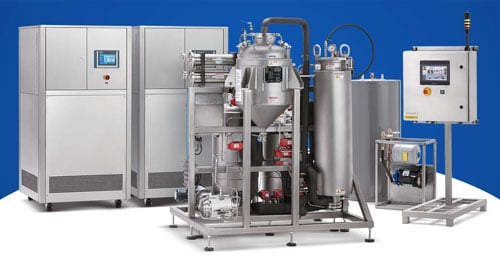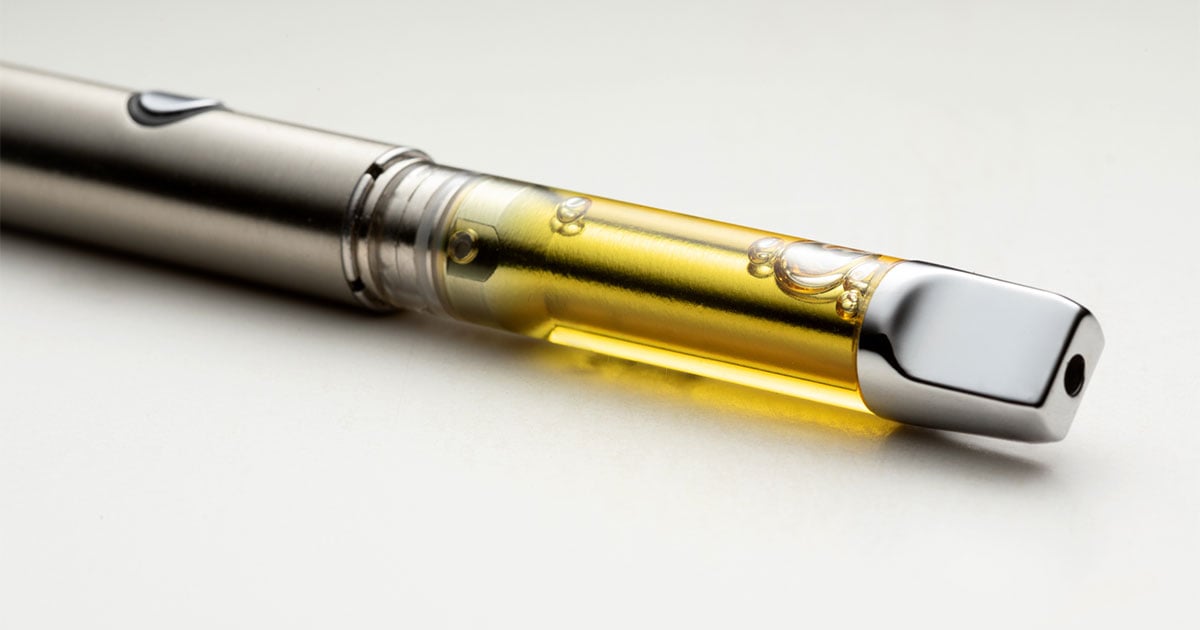
After the 2018 Farm Bill was passed, hemp production ramped up, creating a burgeoning CBD market. Now, hemp producers are synthesizing a hemp-derived CBD isolate to create delta-8 THC, a minor cannabinoid found in cannabis. Delta-8 THC’s mild intoxicating qualities and long-lasting relief are making it an instant hit among cannabis consumers, but is it legal?
Before going all-in on the delta-8 THC craze, there is a chemical difference to note between delta-8 THC and delta-9 THC, which creates different effects. In addition, both cannabinoids are treated differently under federal law. Understanding the differences between the two cannabinoids as a consumer or producer can help you have a safe and legal experience.
Delta-8 vs. Delta-9: Understanding the Cannabis Plant
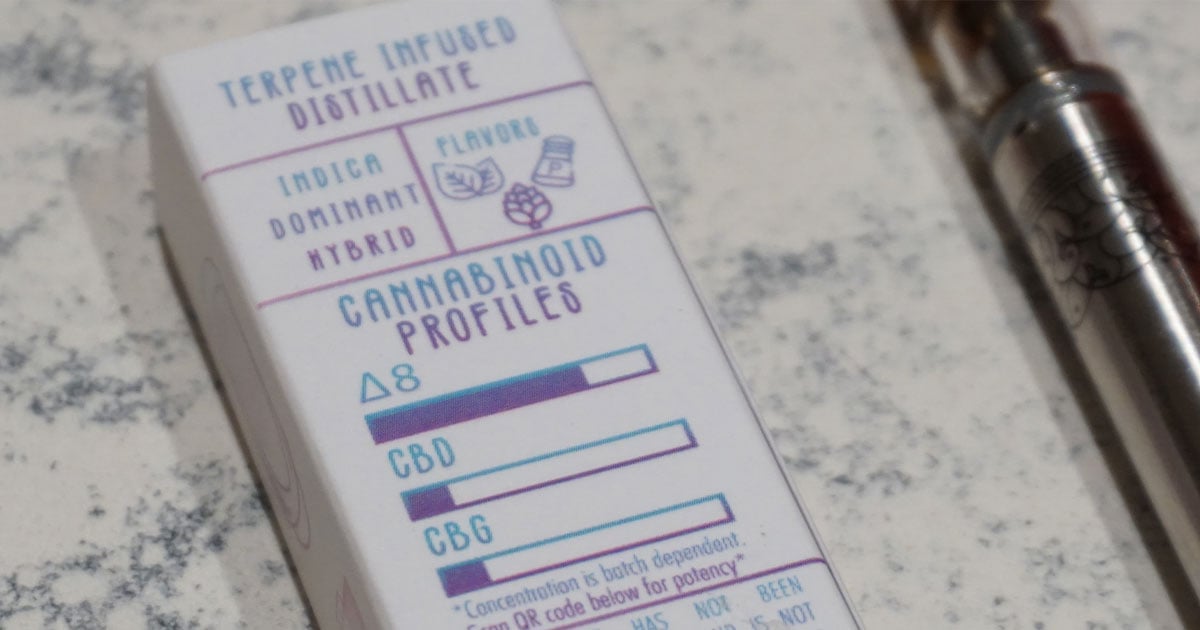
The cannabis plant contains over 400 active ingredients, including cannabinoids, terpenes, and flavonoids, each with a unique therapeutic potential. Generally, the cannabis market is defined by the marijuana plant’s two primary cannabinoids: cannabidiol (CBD) and delta-9 tetrahydrocannabinol (THC).
THC and CBD interact with the body’s endocannabinoid system and cannabinoid receptors (CB1 and CB2), producing various effects such as pain relief, inflammatory relief, stress relief, and sedation. Research has also shown that interactions between the entire spectrum of the plant's compounds, including all of its cannabinoids and terpenes, work better together in a process known as the entourage effect.
In the fast-moving world of cannabis, minor cannabinoids are proving to be prime targets for clinical studies and medicinal use. Delta-8 THC, in particular, is making a splash on cannabis consumers for its wide availability, novelty, mild intoxicating effects, and therapeutic power. However, its synthetic production methods make it a federally illegal product.
While delta-9 THC and delta-8 THC may share many health benefits, each has a distinct potency and “high.” Understanding the differences in molecular structure, production, legality, health effects, and side effects can help you make more informed production and consumption choices and stay on the right side of the law.
Chemical Structure
Delta-8 THC and delta-9 THC may have similar chemical structures but the differences make all the difference. For example, the placement of the double bond on the carbon atom chain varies between the two cannabinoids.
Delta-8 THC’s double bonds are on the eighth carbon atom, while delta-9 THC’s double bonds are on the ninth. This is why they are named delta-8 THC and delta-9 THC. The double bond placement on the carbon chain determines how it interacts with CB1 receptors in the body's central nervous system.
Production
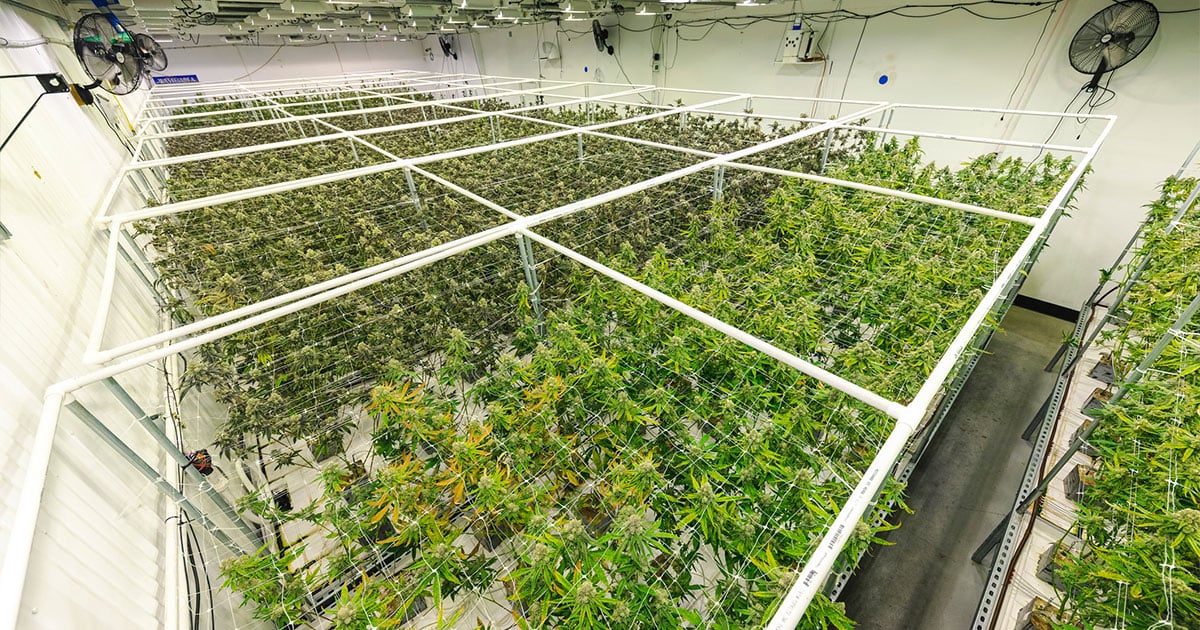
Understanding how each cannabinoid is produced can help you determine if you want to consume it or make it as a processor. Keep in mind, delta-9 THC is the cannabis plant's most commonly found cannabinoid, while delta-8 THC is found in trace concentrations.
Due to the high concentration of delta-9 THC in marijuana plants, processors more cost-effectively extract it from biomass from female cannabis plants. After the buds or trim are harvested and dried and cured or flash frozen, the delta-9-rich biomass undergoes a carbon dioxide (CO2), ethanol, or light hydrocarbon (propane and butane) extraction.
Crude delta-9 extracts may undergo additional filtration processes during the closed-loop extraction process to remove pesticides, chlorophyll, fats, lipids, and other unwanted substances. The residual solvents are purged in a full vacuum to reduce the heat needed to evaporate the solvent and produce a clean end product.
Since delta-8 THC is found in lower concentrations in the cannabis plant, its extraction from hemp plants takes more time and labor. A CBD isolate must undergo a synthetic conversion process using solvents, acids, and regents to convert into delta-8 THC. While the product is made from legal hemp, its production process pushes it into illegal territory.
Hemp processors start with an extraction and distillation process to create a CBD isolate from hemp biomass. A nonpolar, organic solvent such as heptane or toluene is used to dissolve the isolate. An acid reagent is stirred into the mixture to stimulate a chemical reaction that converts CBD into delta-8 THC.
Then, the mixture is neutralized with an alkaline solution to reduce the number of byproducts in the solution. Processors may use a rotary evaporator to reduce the residual solvents from the extract significantly.
Once extracted from the biomass into a concentrate, the delta-8 THC and delta-9 THC extract can be used to create various infused products, including cannabis edibles, extracts, vape cartridges, tinctures, topicals, capsules, transdermal patches, and so much more.
Legality
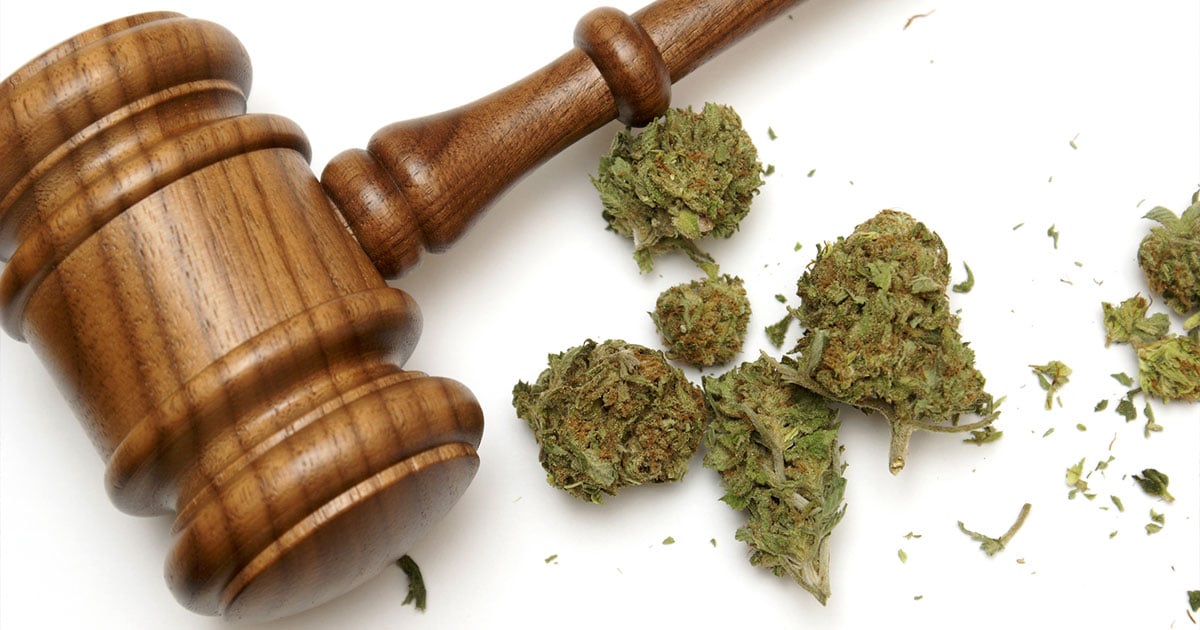
Delta-8 THC is popular among many cannabis consumers, especially ones who do not have legal access to delta-9 THC. The 2018 Farm Bill legalized industrial hemp production and products containing under 0.3% delta-9 THC by dry weight. Many cannabis producers interpreted this to mean that any hemp-derived products containing under 0.3% THC are legal. Delta-8’s legality has been under scrutiny on the federal and state level.
In 18 states (as of Dec. 2021), state regulators have moved to restrict or ban delta-8 THC due to the concerning effects from possible contamination of byproducts and contaminants. With the rise of delta-8, there has been an increase in emergency room visits due to accidental exposure and overconsumption.
Currently, delta-9 THC is a Schedule I controlled substance under the Controlled Substances Act (CSA). Schedule I substances have a high potential for abuse and no medicinal value. Any cannabis plant or product with more than 0.3% THC by dry weight is considered a federally illegal substance. Many states have passed medical and adult-use cannabis laws.
Federal government agencies have taken unique approaches to the legality of delta-8 THC. For example, a recent letter from the Drug Enforcement Agency (DEA) suggests that delta-8 THC is federally legal but illegal when produced synthetically, even if made with legal hemp. In the letter, the DEA states that delta-8 THC “synthetically produced from non-cannabis materials is controlled under the CSA as a ‘tetrahydrocannabinol.”
Processors must consider that delta-9 THC by dry weight is impossible to measure in extracts and beverages, which can cause problems with staying federally compliant. In Oregon, the dry weight is calculated with a formula that does not require labs to physically remove the moisture. Delta-8 processors are operating in violation of the Controlled Substances Act..
In addition, various states have different cannabis regulations, some altogether banning delta-8 products. While delta-8 products are currently being sold across state lines, in some cases, some states explicitly prohibit the distribution of these products. Whenever there is a legal “grey area,” it’s best to err on the side of caution and stay away from Delta-8 products.
Medical Benefits
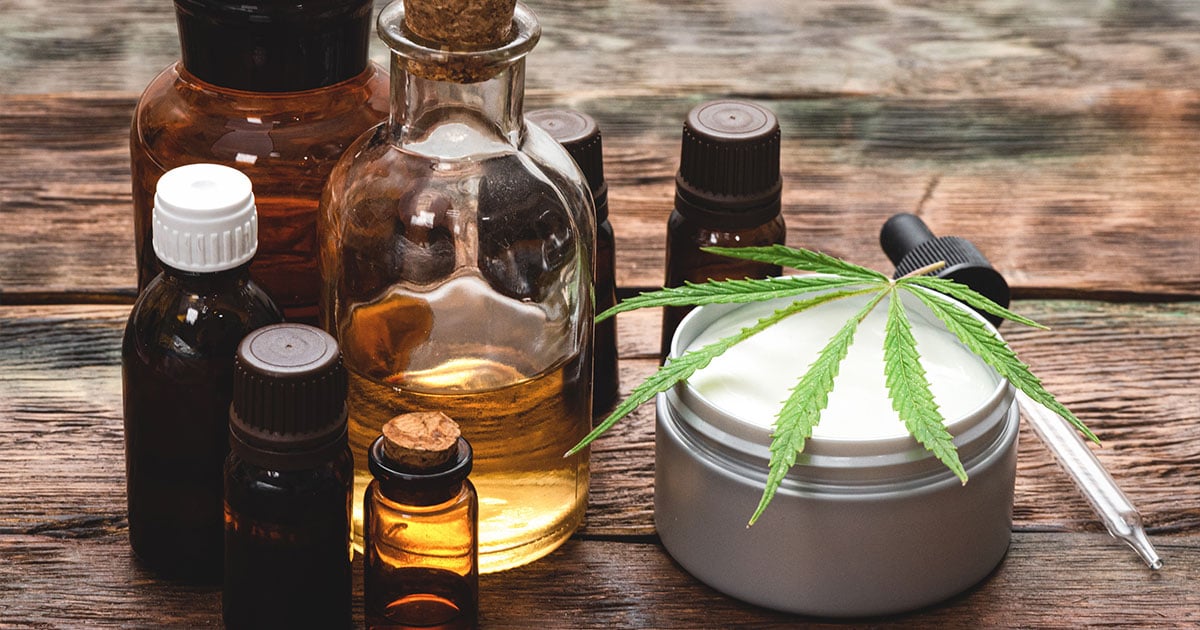
Delta-8 THC and delta-9 share many medical benefits. Delta-9 THC works by stimulating CB1 receptors found in areas of the brain such as the frontal cortex, which is associated with problem-solving, motor function, motivation, and more. THC also affects the hippocampus, which is involved with learning and memory.
In terms of its “high,” delta-8 produces a smoother and milder high, about less than half the intensity of delta-9’s high. Delta-8 users may experience blissful, euphoric, and uplifting effects, similar to low doses of THC.
Binding affinity refers to the strength of the bonds between a biomolecule and an inhibitor or drug. Delta-8 THC binds to G-proteins coupled with CB1 receptors located in the central nervous system. Delta-9 has a high binding affinity with CB1 receptors in the central nervous system. Delta-8 and delta-9 have also displayed a strong binding affinity with CB2 receptors in the gastrointestinal and immune systems.
Effects of delta-8 THC include:
- Reduced anxiety
- Drowsiness
- Pain relief
- Neuroprotective
- Anti-inflammatory
- Inhibits growth of some types of tumors
- Stimulates appetite
- Reduced vomiting
- An increase and then decrease of blood pressure
- Reduced heart rate
Effects of delta-9 THC include:
- Intoxicating
- Reduced anxiety in low doses and high anxiety in high doses
- Drowsiness
- Memory impairment in high doses
- Relieves depression in low doses
- Pain relief and muscle relaxation
- Neuroprotective
- Promotes brain cell growth
- Antiepileptic in low doses, especially when paired with high CBD doses
- Reduces risk of Alzheimer’s disease
- Antibiotic properties
- Reduced intraocular pressure
- Increased heart rate
- Improved blood flow to the brain
- Reduced nausea
- Appetite stimulant
- Antioxidant
- Inhibits cancer cell growth
- Anti-inflammatory
Delta-8 and delta-9 are thought to provide relief for digestive issues like nausea and vomiting. In a 1995 study, researchers found that delta-8 had strong antiemetic properties and eliminated vomiting in children with cancer, which was especially helpful due to its milder intoxicating levels.
Delta-9 is believed to increase appetite, which can help patients with eating disorders like anorexia nervosa. Delta-8, however, has been shown to provide even more appetite stimulation than its delta-9 counterpart.
In addition, research suggests that delta-9 and delta-8 THC provide relief from stress and anxiety in low to moderate doses. Both cannabinoids are also used as a natural sleep aid.
Potency and Intoxication
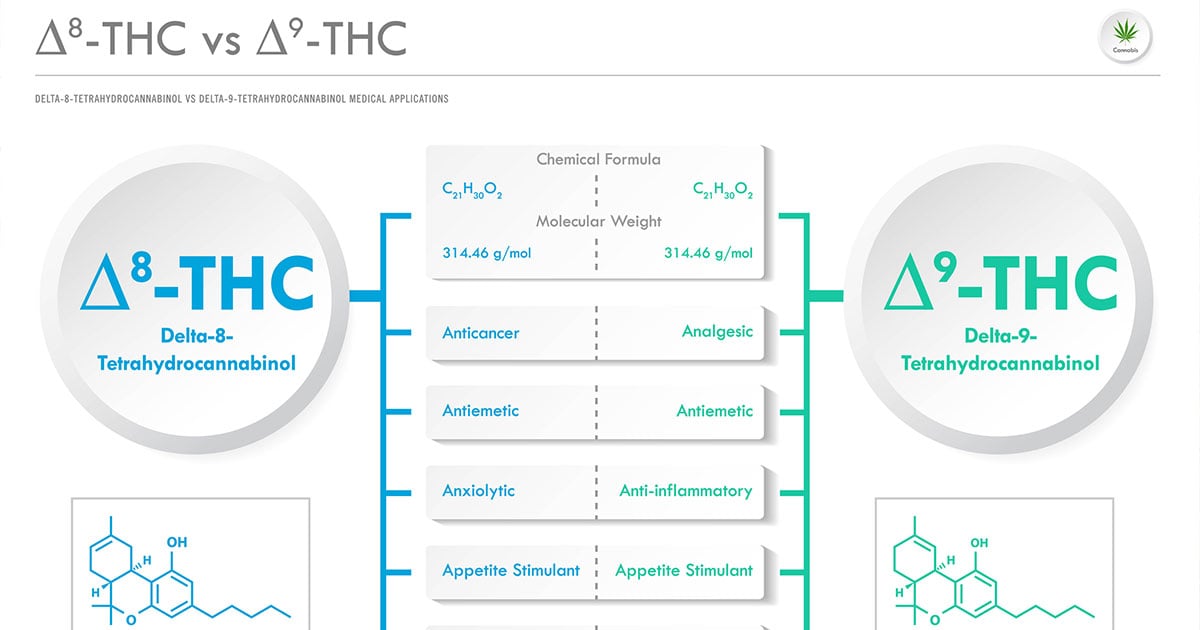
Does delta-8 get you high? Yes, but not to the significant degree as delta-9 THC. Delta-8 THC’s high is much milder. Delta-9 THC is known for its intense, intoxicating effects that elicit euphoria and other cognitive effects.
Keep in mind, delta-8 THC is metabolized differently when ingested. When delta-8 THC is inhaled or consumed sublingually, you feel the effects of delta-8. However, when ingested, the delta-8 THC undergoes second-pass metabolism and is converted into 11-hydroxy-THC, a THC metabolite. The same process happens when consuming delta-9. If you want to avoid failing a THC drug test, you do not want to ingest delta-8.
Adverse Effects and Safety
In terms of adverse effects, delta-8 and delta-9 differ in their intoxication potential and their side effects. Since delta-9 THC produces a more potent high than delta-8 THC, there is a higher risk of overconsumption and adverse effects. However, some delta-8 users may also easily feel overconsumption effects if they exceed their THC tolerance.
Delta-8 and delta-9 produce similar adverse effects, including:
- Dry mouth
- Red eyes
- Fast heart rate
- Delayed reaction times
- Anxiety
- Memory loss
- Confusion
- Drowsiness
- Short-term memory loss
- Coordination issues
In some cases, marijuana used in the extraction process can be contaminated since cannabis is a powerful bioremediator, able to absorb pesticides and other chemicals used during cultivation. When undergoing the extraction process, processors may unknowingly concentrate any pesticides and other potentially harmful chemicals in the extract, which can be harmful to consumers.
Dosage
The proper dosage depends on the user. Since delta-8 is about half the strength of delta-9, most delta-8 products are sold at doses two to three times higher than delta-9 products. Consider the intensity of the product before consuming a large amount of delta-8 or delta-9. First-time users can start with a low dose and gradually build up to their desired experience.
Some industry experts believe that the presence of the olivetol byproduct in delta-8 THC products may be the cause for the reduced intoxicating levels. One patented use of oral olivetol is designed to inhibit delta-9 intoxication. This byproduct may be reducing the potency of delta-8 and producing milder intoxicating effects.
Which Cannabinoid Is Right for You?
When it comes to choosing between delta-8 THC or delta-9 THC products, it ultimately depends on your desired experience and whether you care about delta-8’s legal status. You also need to consider how your body reacts to cannabis. Your experience will depend on your metabolism, genetics, amount consumed, the potency of a product, delivery method, and frequency of use.
If you are a first-time user, delta-8 THC may seem like a natural next step from CBD compared to trying THC right away. However, its illegal status makes it a risky option, even if you need the medicinal benefits.
If you need a recreational buzz or more intense intoxication and relief, you may want the whole experience of delta-9 THC. No matter what you choose, always look for lab-tested products and buy from legal cannabis dispensaries and online retailers to have the best experience.

